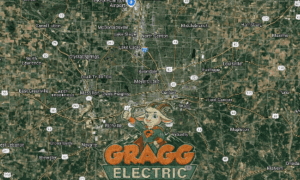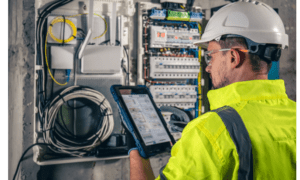Boiler repair is a critical aspect of home maintenance that ensures your heating system’s efficient and safe operation. However, working with boilers can be dangerous if proper precautions are not taken. Whether you’re a homeowner attempting minor repairs or a professional technician, safety should always be the top priority. Boilers operate under high pressure and temperature conditions, making them potentially hazardous if not handled correctly. From gas leaks to electrical risks, the dangers associated with boiler repair are numerous and should not be underestimated.
This guide will explore eight safety tips everyone involved in boiler repair should follow to prevent accidents, injuries, and property damage. By adhering to these guidelines, you can ensure a safer working environment and more reliable repair outcomes.
-
Turn Off the Power and Fuel Supply
Shutting off the electrical power and fuel supply is crucial before beginning any repair work on your boiler. Locate the main gas valve for gas boilers and turn it to the “Off” position. For electric boilers, switch off the power at the circuit breaker. This step prevents the risk of electrical shock and gas leaks during repair. Always double-check that the power and fuel are completely off before proceeding with any work.
-
Allow the Boiler to Cool Down
Boilers operate at high temperatures, and attempting repairs on a hot system can lead to severe burns. After turning off the power and fuel supply, wait for the boiler to cool down completely. This cooling period can take several hours, depending on the size and type of boiler. Use this time to gather necessary tools and review repair procedures. Patience in this step is crucial for your safety.
-
Wear Proper Personal Protective Equipment (PPE)
Proper PPE is essential for anyone conducting boiler repairs. This includes safety glasses to protect your eyes from debris, heat-resistant gloves to prevent burns, and sturdy work boots for foot protection. Consider wearing a hard hat if you’re working in a confined space. For professional technicians, specialised equipment like respirators may be necessary when dealing with potentially harmful substances. Always ensure your PPE is in good condition before use.
When choosing professional boiler repair services in Maple Ridge, it is important to choose technicians who prioritise safety and use proper PPE. Boiler Repair Maple Ridge, https://boilerrepairmapleridge.ca/, offers expert services emphasising safety protocols, ensuring that all repairs are conducted with the utmost care and protection for technicians and homeowners.
-
Ensure Proper Ventilation
Good ventilation is crucial when working on boilers, especially those that run on gas. Proper airflow helps prevent the buildup of potentially harmful gases like carbon monoxide. If you work in a confined space, use fans to improve air circulation. For extensive repairs, consider opening windows and doors to increase natural ventilation. Never ignore strange odours during repair work, which could indicate a gas leak or other serious issues.
-
Use the Right Tools and Equipment
Using the correct tools for boiler repair makes the job easier and enhances safety. Ensure all tools are in good condition and appropriate for the task at hand. For electrical work, use insulated tools to prevent shock. When working with gas components, use specialised tools designed to prevent sparks. Having a well-stocked toolbox with the right equipment helps avoid improvisation that could lead to accidents.
-
Follow the Manufacturer’s Guidelines
Every boiler model has specific repair and maintenance procedures outlined by the manufacturer. Always consult these guidelines before attempting any repairs. These instructions provide valuable information on safe handling, specific safety precautions, and proper repair techniques for your boiler model. Ignoring manufacturer guidelines can lead to improper repairs, voided warranties, and safety hazards.
-
Be Aware of Electrical Hazards
Boilers involve complex electrical systems; mishandling these components can result in severe electrical shocks. Always use a voltage tester to confirm power is off before touching any electrical parts. If you’re unsure about electrical work, it’s best to leave it to certified professionals. Keep your work area dry when working near electrical components and use insulated tools and rubber mats for added protection.
-
Know When to Call a Professional
While homeowners can address some minor boiler issues, many repairs require the expertise of a certified technician. Recognise your limitations, and don’t hesitate to call a professional for complex repairs or if you encounter any uncertainties. Attempting repairs beyond your skill level can lead to dangerous situations and potentially costly damages. Professional technicians have the training, experience, and equipment to handle repairs safely and effectively.
Frequently Asked Questions
How often should I have my boiler professionally inspected for safety?
It’s recommended that your boiler be professionally inspected at least once a year. Regular inspections can identify potential safety issues before they become serious problems and ensure that your boiler operates efficiently.
What should I do if I smell gas while working on my boiler?
If you smell gas, immediately stop what you’re doing, don’t turn on any electrical switches or create any sparks, open windows and doors if possible, evacuate the area, and call your gas company or emergency services from a safe location.
Can I perform a safety check on my boiler myself?
While professional inspections are crucial, you can perform basic visual checks regularly. Look for signs of wear, leaks, or corrosion. Ensure vents are clear and there are no obstructions around the boiler. However, detailed safety checks should be left to certified technicians.
What safety features should my boiler have?
Modern boilers should have several safety features, including a pressure relief valve, low water cutoff, flame safeguard controls, and carbon monoxide detectors. If your boiler lacks these features, consider upgrading or installing them by a professional.
Conclusion
Boiler repair safety is not just about following rules; it’s about cultivating a mindset that prioritises caution and awareness at every step. By adhering to these eight essential safety tips, you can significantly reduce the risks associated with boiler repair and maintenance. Remember, when in doubt, it’s always better to avoid caution and seek professional help. Regular maintenance, proper care, and responsible handling of your boiler system will ensure your safety and extend the life of your heating system, providing comfort and peace of mind for years to come.
Read More From Techbullion



































